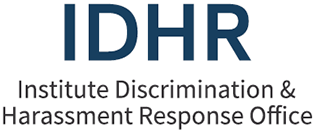Prohibited Conduct | For Allegations Against Students | Overview & Definitions
The Mind and Hand Book is the official guide to MIT’s expectations of all undergraduate and graduate students. The Mind & Hand Book outlines standards of conduct including prohibitions on harassment, discrimination, intimate partner violence, stalking, sexual misconduct, and Title IX sexual harassment.
Policies and procedures can be confusing to navigate and we don’t expect you to be able to understand all of the complexity laid out on this page alone. If you have any questions, concerns, or are having a hard time understanding how to relate your experience to Institute policies, please reach out to idhr@mit.edu or for confidential support, contact Violence Prevention and Response at vpradvocate@mit.edu.
Please note: Although MIT broadly prohibits sexual harassment and other forms of sexual misconduct, federal Title IX regulations require MIT to follow specific processes when the Institute has actual knowledge of a report of certain categories of sexual misconduct, referred to as “Title IX Sexual Harassment.”
Title IX Sexual Harassment means:
Conduct on the basis of sex that satisfies one or more of the following:
- An employee of MIT conditioning the provision of an aid, benefit, or service of MIT on an individual’s participation in unwelcome sexual conduct;
- Unwelcome conduct determined by a reasonable person to be so severe, pervasive, and objectively offensive that it effectively denies a person equal access to MIT’s education program or activity; or
- “Sexual assault,” “dating violence,” “domestic violence,” or “stalking,” as defined by federal law and set out on the Institute Discrimination and Harassment Response (IDHR) website.
MIT must follow the specific processes cited below when it receives a formal complaint of Title IX Sexual Harassment and where all of the following apply:
- At the time of filing a formal complaint, the Complainant was/is participating in or attempting to participate in the education program or activity at MIT;
- The alleged conduct occurred in an education program or activity controlled by MIT; and
- The alleged conduct occurred against a person in the United States.
Formal Complaints of sexual harassment and sexual misconduct that do not meet the definition of Title IX Sexual Harassment could violate other Institute policies and are addressed in the Sexual Misconduct Hearing Procedures (Non-Title IX Sexual Harassment) in the Committee on Discipline Rules for complaints against students.
Discrimination or Discriminatory Harassment
A violation of any of the following Conduct Policies, when the alleged conduct is based on an individual’s protected class:
- Mind and Hand Book, Section II: Harassment
- Mind and Hand Book, Section II: Intimate Partner Violence
- Mind and Hand Book, Section II: Nondiscrimination Policy
- Mind and Hand Book, Section II: Non-Retaliation
- Mind and Hand Book, Section II: Sexual Misconduct
- Mind and Hand Book, Section II: Stalking
- Mind and Hand Book, Section II: Title IX Sexual Harassment
Other Relevant Policies
- Mind and Hand Book, Section II: Alcohol Policy
- Mind and Hand Book, Section II: Other Drug Policy (Prohibited Substances)
- Mind and Hand Book, Section II: Good Samaritan Amnesty Policy
- Mind and Hand Book, Section II: Freedom of Expression Policy


